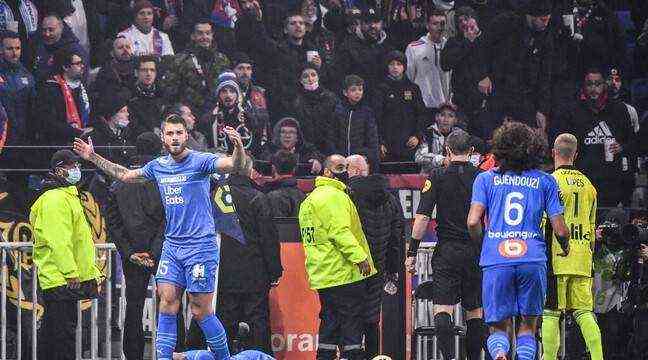After a series of incidents in the world of football, the government has taken up the issue of securing stadiums. This Tuesday, the Minister of the Interior, Gerald Darmanin, assured that measures will be proposed “in two weeks”. A specialist in issues of violence in sport and hooliganism, sociologist Dominique Bodin believes that “it would simply be necessary to apply the laws that exist”. For the teacher-researcher at the University of Paris-Est Créteil, it is also necessary to strengthen the means available to the clubs to ensure safety in sports arenas.
How do you analyze the latest events in the stadiums?
There is nothing specifically new, it is part of the usual phenomena. Only politicians find that this is new and that football is in great danger. No, football has known this for years. This shows that the problems of violence are recurrent when we welcome whole crowds. In the stadiums – which contain between 25,000 and 45,000 spectators per day of the championship – takes place the equivalent of an average city. With all the vicissitudes that this includes: antagonisms between supporters and between clubs, provocation, play and stupidity.
Above all, this highlights a security flaw. If we take the specific case of the bottle thrown at Dimitri Payet, that means that someone entered with a bottle and its cork. There was therefore a defect in the excavations or the pat-downs, or else he benefited from a complicity inside. But this is a security flaw. At the same time, you have to keep in mind that it is particularly difficult to control a city that enters a stadium during the half hour before the match.
Can safety nets be an interesting tool to avoid this kind of problem?
Obviously, if we install a net, there will be no projectiles on the stadium. We also know that by grilling stands, have created territories that are used by groups of supporters. Even if we are talking about an anti-projectile net here, the result would be symbolically the same. So that’s a solution, but it won’t make the problems go away. They will only disappear with enhanced security procedures, with the procedures being overhauled.
We can clearly see that with the stoppages due to the health crisis, a certain number of cogs are seized up. You should also know that the problems of violence do not disappear, they accompany the functioning of groups. These phenomena are recurrent, because the older ones who settle down are replaced by the younger ones who want to prove that they are as good as their elders.
What can clubs do?
The issue of clubs is more a question of the means given to security directors. The security of the stadiums is always the poor relation of the clubs. They invest, of course. But the goal is for it to cost as little as possible. If you look at the clubs’ budget for security in relation to their payroll, you will see that it is totally derisory. Clubs need to be aware that safety has a cost, but also a lot of benefits. When there are incidents, it is first the image of the club, of the town that is affected. And this image is measured in advertising impact, in sponsors. It’s an awareness that the football world has never really had. Just as he never understood that it was necessary to prevent incidents by taking an interest in the youngest supporters.
What to expect from the proposals that will be presented within 15 days?
The group tasked with working on it is not going to add anything to what already exists. We should simply apply the laws that exist. When there are incidents, stadium bans must be used in an exemplary manner. But it is very difficult to apply.
We must strengthen the resources of the clubs. We need training resources, human, financial, material … In most clubs, there is no ceiling for player salaries. On the other hand, the “security” budget must not exceed a certain amount. And there, suddenly, we realize that this is where the shoe pinches.

